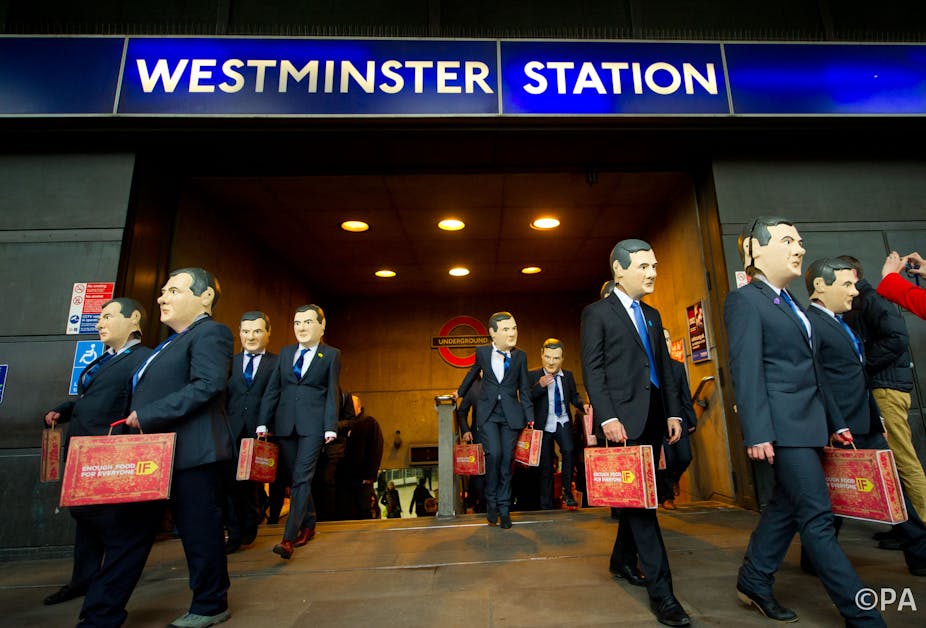In a recent speech at the respected think tank the Royal United Services Institute, foreign secretary Philip Hammond discussed the various security threats facing the UK. This saw Hammond defend UK intelligence services in the face of recent criticisms. He also made some sharp observations about Russia.
Hammond is certainly not a spellbinding orator, but the subject of the speech was deemed important enough to merit lengthy coverage on BBC radio. As a result, many thousands will have heard him applauding the government’s “long term economic plan to undo the damage of Labour’s Great Recession”. At least, that’s what I think they heard. When I checked the text of the speech on the institute’s website, the reference to Labour’s Great Recession was not there – it had become simply “the Great Recession”.
I was in a queue of traffic when I heard Hammond’s speech, and it’s possible that a nearby engine misfired at an unlucky moment, making a sound which was difficult to distinguish from the word “Labour”. This would be a logical explanation, since it’s hard to imagine that the occupant of one of the country’s foremost political offices would have injected a partisan comment into a speech addressing issues which normally command cross-party agreement in a venue which is associated with impartial scholarship.
Mind you, Hammond has form. He has been using similar phrases for a very long time.
We’re likely to hear plenty of talk about “Labour’s Great Recession” between now and the general election. One might quibble that it hardly represents a complete summary of the reasons for Britain’s recent economic problems but, as political insults go, it is pretty mild.
Regrettably, there is every sign that the campaign is going to get very unpleasant. For one thing, the fixed-term parliament has saddled us with horribly protracted battles, so any positive messages will have been exhausted long before May 7. And for another, when contests are close or unpredictable it seems more tempting for politicians to fight dirty. On current form, public esteem for the political process is likely to diminish even further, regardless of which party wins the election.
Bottom line
With this in mind, it could be unfortunate if the current plans for televised debates between the party leaders come to fruition. A head-to-head between Ed Miliband and Cameron – whose antagonistic relationship seems unalloyed even by grudging respect – would be a sore trial of temper for each man. A debate between seven party leaders runs the risk of descending into the political equivalent of all-in wrestling.
This is not to say that Cameron should be congratulated for resisting participation. His excuses for refusing to take part in any debate during the campaign period have been so ludicrously lame that even he must have had trouble delivering the words with a straight face. The debate saga might end up damaging Cameron’s prospects, but so far the electorate seems unmoved.
The budget will be the first serious test for the Conservatives in this campaign. The big danger for the party is that Osborne might use March 18 to put forward proposals that could be construed as election sweeteners for key voters. But Labour will be hoping to seize on anything which can be presented as a blatant bribe so the chancellor will need to prepare for this.
Labour will have to be cautious too though. The main opposition party always has great difficulty on these occasions since it is contractually obliged to attack even the most judicious budget. It should pick its fights carefully to avoid seeming opportunistic or exposing its own lack of bright ideas.
It might be more tricky for the Conservatives if the Liberal Democrats find serious fault with Osborne’s announcements. After all, the junior coalition partner has derived precious little credit from its influence over previous budgets. This could be a good opportunity to claim that the Conservatives have botched their attempt to tackle what might neatly be termed “the Great Recession caused primarily by injudicious practices within the banking sector but probably made worse by labour’s financial management”.

